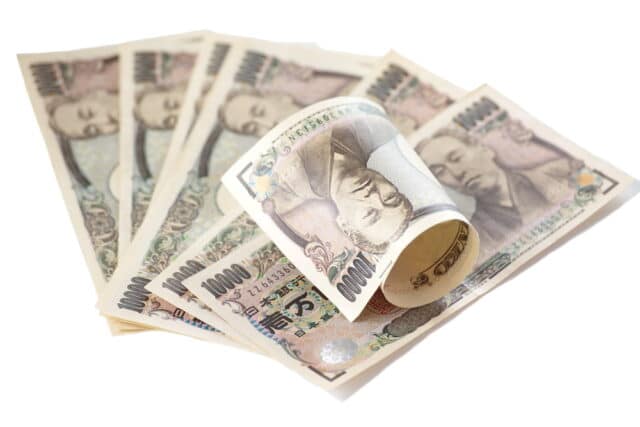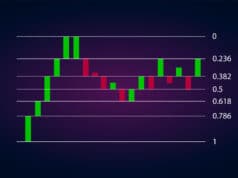Japanese yen is one of the most important currencies in the global financial sector. It plays in the same league as the US dollar, British pound, and the euro, going by the number of trades it attracts and its role. It is best known for its safe-haven credentials as market participants turn to it in times of uncertainty.
When paired with the US dollar, it attracts some of the highest trading volumes in any given trading day, given the size of the Japanese and the US economy. The fluctuations that come into being daily are usually the result of traders and other market participants reacting to several economic data releases that paint a picture of the Japanese economy.
Below are some of the most important economic data releases that any person looking to trade the yen against any other fiat should be aware of.
The Tankan survey
Japan is best known for its manufacturing capabilities that span various industries. The Tankan survey is an economic study carried out by the Bank of Japan to assess the business condition in the country. In the survey, thousands of companies are canvassed. Companies not included are those with a weak link to economic conditions, such as education and health care.
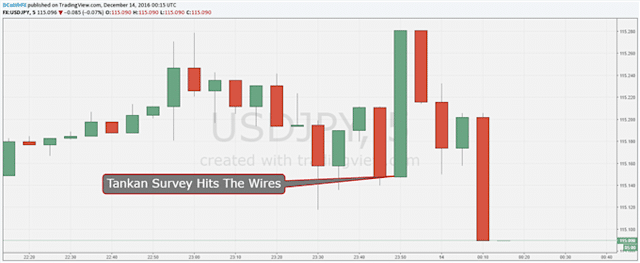
Companies and business leaders are asked about conditions and trends and their expectations for the next quarter or year in the survey. Conversely, the report provides a clear picture of the health of the island nation, which in return influences traders’ sentiments on the yen.
In the Tankan Survey, a reading of more than 0 affirms the strength of the Japanese economy and its long-term prospects, known to trigger yen strength against other currencies. Nevertheless, a reading of less than 0 affirms unfavorable conditions, which tends to trigger yen weakness against the majors most of the time.
Gross Domestic Product
Gross Domestic Product, the value of all finished goods and services produced within a country, is another important economic release that influences Japanese yen sentiments in the forex market. Japan is home to the third-largest economy in terms of nominal GDP. Therefore, the yen is usually in focus whenever GDP numbers are on the dial.
Periods of economic activity expansion and increased consumer activity result in a significant expansion in GDP figures, affirming the strength of the Japanese economy. Traders and investors react to a better than expected GDP report by buying the yen, causing it to strengthen in the forex market.
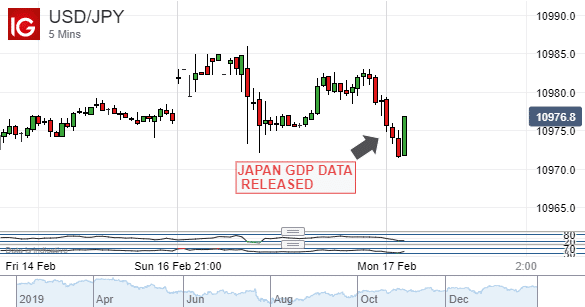
The reverse is also true, whereby the yen tends to weaken and lose ground against the majors whenever the GDP report signifies contraction of the island nation’s economy. For instance, the yen lost some ground against the dollar at the height of the COVID-19 pandemic as economic activities came to a standstill owing to the restriction measure designed to curb the spread of the virus.
Retail sales
Retail sales data provides insight into consumer spending power within the economy. The fact that it accounts for the biggest share of the overall economic activity sees it have a big impact on traders’ sentiments on the yen.
A higher than expected retail sales data affirms strength in the economy, which is usually positive or bullish to the yen. Traders and other market participants react by buying the yen whenever the retail sales data exceed consensus estimates.
A lower than expected retail sales data implies weakness in the Japanese economy, which could result from reduced spending power. Such a reading is usually taken as bearish and often causes the yen’s weakness against the majors.
Trade balance
The trade balance is another important economic data to pay attention to when trading the Japanese yen in the forex market. It affects the yen exchange rate given its impact on the demand and supply of foreign exchange.
For instance, whenever Japan exports more goods than imports, there is usually strong demand for the yen to pay for the goods. Strong demand amid limited supply often causes the yen to appreciate against the majors.

Likewise, whenever Japan imports more than it exports, there is a relatively low demand for the Japanese yen resulting in its price decline.
Industrial production and inflation
Economic data depicting the rate of industrial production also goes a long way in painting a picture of the health of the Japanese economy, which ends up influencing yen sentiments in the market. Periods of higher industrial production imply economic growth, which causes the yen to strengthen. The reverse is also true.
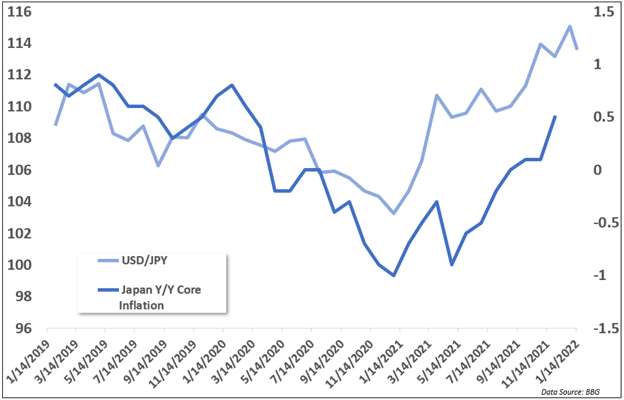
Inflation data in terms of consumer price index also goes a long way in influencing the yen. In most developed economies, inflation is often expected to stay within the 2% range. Inflation rising above this level all but forces the central bank to act to keep the inflationary pressure low. For instance, the Bank of Japan may end up hiking interest rates to try and combat inflation which can trigger yen strength.
Bank of Japan’s economic projections
Economic projections by the Bank of Japan have the biggest influence on the Japanese yen more than anything else. Whenever the central bank sounds hawkish about the economy and its long-term prospects, it sends a message that the economy is doing well, fuelling yen strength. Similarly, whenever the central bank sounds dovish, the same arouses concerns all but fuelling yen weakness.
In addition, the monetary policies that the central bank pursues end up influencing yen strength a great deal. Interest rate hikes imply strength in the economy, which goes a long way in fuelling yen growth against other currencies.
Whenever the central bank cuts interest rates and embarks on a bond-buying spree, the accommodative monetary policies arouse concerns about the economy. The wave of concerns ends up fuelling yen weakness across the board.
Final thoughts
The Japanese yen foreign exchange rate fluctuates significantly as traders and market participants react to key economic releases. The Tankan survey, GDP, retail sales, trade balances are some of the most important reports that influence yen price action.
